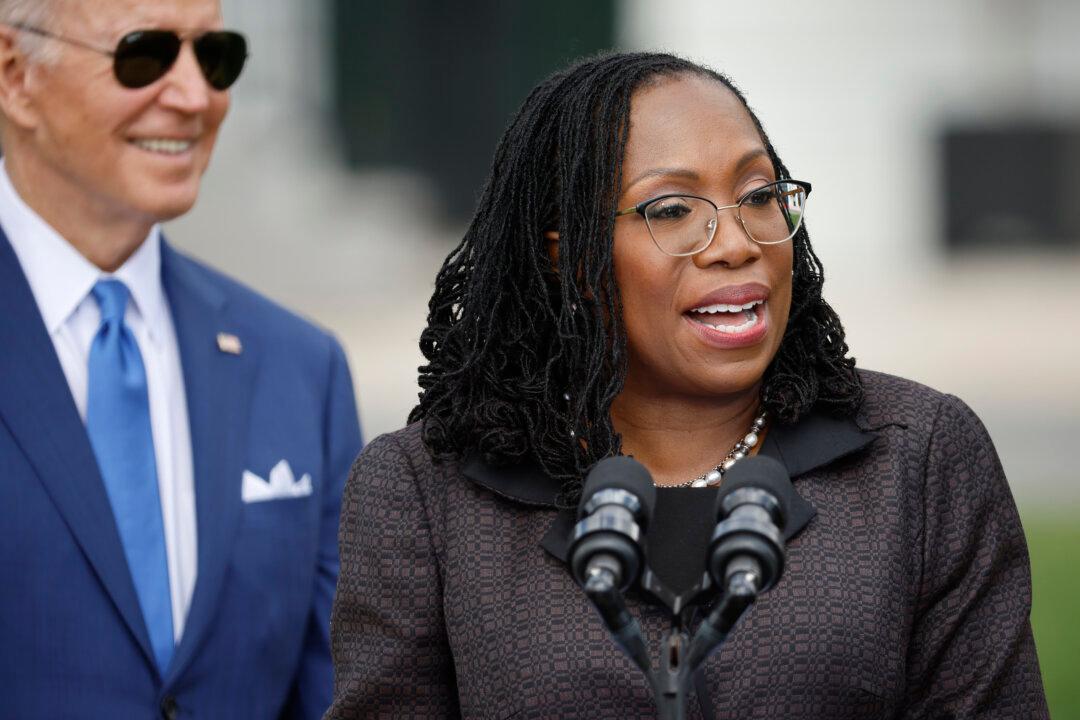Fresh off being confirmed by the Senate, soon-to-be Supreme Court Justice Ketanji Brown Jackson said on April 7 that she will seek as a member of the nation’s top court to uphold the rule of law and not overreach into the domain of Congress.
Speaking at the White House in Washington, Jackson thanked a slew of people, including her family and President Joe Biden, in remarks that touched on how she plans to decide on cases when she assumes her new role.





